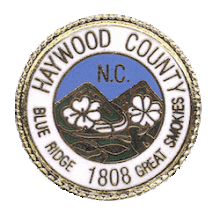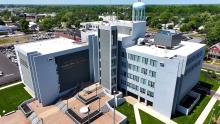
Last month, the Haywood Advancement Foundation (HAF) sowed the seeds for a long-term broadband strategy in Haywood County, North Carolina. The nonprofit foundation posted a Request for Proposals (RFP) for a feasibility study as part of their strategy to develop a master plan and improve local connectivity. A $10,000 grant from the Southwest Commission and a matching $10,000 grant from HAF will fund the early stages of Haywood’s broadband initiative. The due date for proposals is July 15th.
Living In The Present, Planning For The Future
Located about 30 minutes west of Asheville, Haywood County is home to approximately 60,000 residents. Asheville’s status as a cultural hub might be driving up Haywood County property values, but it has failed to bring high quality Internet access to its rural neighbors.
State law complicates local municipalities' ability to provide fast, affordable, reliable connectivity via municipal networks. North Carolina’s HB 129, passed in 2011, and is currently under review in the Sixth Circuit Court of Appeals. The Federal Communications Commission (FCC) overruled the state law in early 2015, citing the bill’s burden on the national goal of advancing ubiquitous Internet access. North Carolina and Tennessee challenged the FCC’s decision, oral arguments were heard in March, and all participants are now waiting for a ruling. A master plan can help the community establish different courses of action, depending on the ultimate outcome of the court case.
Mark Clasby, executive director of the Haywood County Economic Development Council, reiterated just how important universal access and higher speeds would be for the community:
“We are committed in making our county have high speed access to the Internet for our citizens, it’s a must for our future. Schools will also be going more digital and kids will need broadband service for their homework. Then there are people who want to move to Haywood to work and have our quality of life. They want to live in Crabtree or Newfound but they have to have Internet access.”
A 2015 countywide survey shed light on the current state of connectivity. More than 20 percent of county households remain unconnected to the Internet, 31 percent connect exclusively through mobile, and 83 percent of those who are connected report insufficient speeds. Local officials are determined to seek educational opportunities, drive up property values, and bring jobs to the region with a fast, affordable, reliable network.
Fixed Wireless Helping Out In The Hills
Wireless technology may play a factor in serving rural residential pockets. The Smoky Mountain News reported:
“After talking to cable providers like AT&T and Charter and wireless providers like Skyrunner, Clasby said it’s clear that Haywood County needs some kind of hybrid service to offer better speeds and rural access.”
There are isolated Haywood neighborhoods that obtain Internet access from local fixed wireless providers using mountaintop towers. Homeowner Jake Robinson, who uses Skyrunner, told Smoky Mountain News, “We were not prepared for [such difficulties connecting our home to broadband] — had we known, our decision on buying that house may have been different.”
We recently spotlighted Highlands, North Carolina, a community located in the Appalachians. Highlands uses its municipal fixed wireless service to provide Internet access to homes where Fiber-to-the-Home (FTTH) is not practical. Fiber is serving businesses in Highlands downtown area and plan to extend it to residents. Their long term goal is to bring FTTH to as many properties as possible, but they are using fixed wireless to serve the immediate need.
RS Fiber Cooperative, a rural Minnesota broadband cooperative, is using fixed wireless to temporarily extend to cooperative members in hard to reach areas. Eventually, they will connect all members with fiber.
RFP Deets
So far there are no estimates for what it may cost to build a broadband network in Haywood. The upcoming broadband assessment and feasibility study will provide more information about estimated costs and network structure in the coming months. Clasby hopes to compose a final broadband master plan by year’s end.
Final proposals are to be submitted to HAF by July 15th at 5:00 pm.
You can get more information by checking out the RFP online or by emailing Mark B. Clasby: mclasby(at)haywoodchamber.com.







